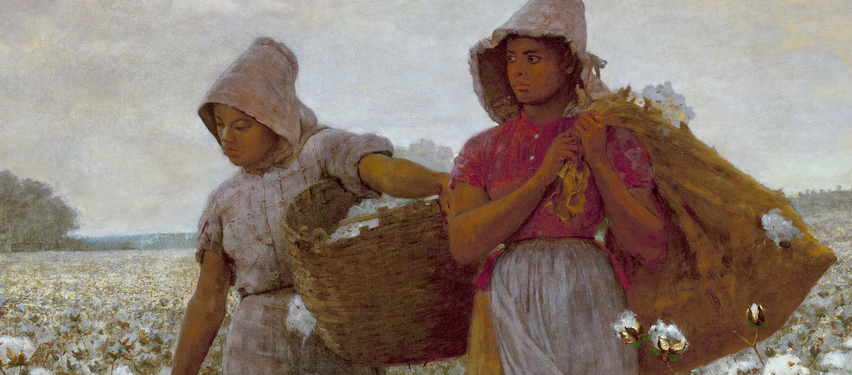Slavery today? | עמוד דיון
תקציר


סיכום ביניים
Slavery continues TODAY. Millions of men, women and children around the world are forced to lead lives as slaves.
Although this exploitation is often not called slavery, the conditions are the same. People are sold like objects, forced to work for little or no pay and are at the mercy of their ‘employers’.
הדיון המורחב
Are we slaves, or are we free?
Bereshit 27:26-29 / נסיון שני / נסיון שלישי
Babylonian Talmud, Bava Batra a0a
Slaveryis closer than you think

Hello everyone and welcome to this Sugia on "Avodah". The material is inspired and drawn from the work of the Limmud chavruta project and so I'd like to run the discussion on those lines – posing a few questions of my own to get started; and then answering and developing points with each of you as we progress.
We are hopefully going to pose and answer 4 or 5 questions in this discussion – I'll introduce another one every couple of days depending on how our conversation goes. You can always go back to an earlier one by pressing "Reply" under an individual comment, or join the general discussion by writing in the box at the bottom of the page.
Our opening question is: "Are we slaves? Are we free?" and I have a few different sources to draw out elements of this:
1 – The story of the Exodus from Egypt and our freedom as a people from Egyptian slavery is hugely important to us – it's the opening of the ten commandments – see the source here. But did we just exchange one master for another? There are lots of times and places in the Tanach and Rabbinic literature where we are referred to as slaves to G-d himself – and this isn't just when we are obedient to his commandments – consider this example from Baba Batra 10a. What do you think the connection is between our freedom from physical slavery and our relationship to G-d's commandments?
2 – Even if we are free people ourselves, how free can we call ourselves when our society is built on the slavery of the past? This was a central argument of the Communist Manifesto – that 19th century labour was if anything worse than the slavery of ancient history because the mechanism of free markets disassociated well-off people from the pain and toil that supported their comfortable lives. Louis CK makes this point more strongly (but with some bad language). How can we be free in the present if we can't be free from the past?
3 – Even if we do think that slavery is a thing of the past entirely, what can we learn from its impact on our sources and religious lives? I have a lot of sources we can discuss later on this, but maybe start off with Rav Soloveitchik's reflections on the halachic (Jewish legal) implications of being free rather than a slave. Are free people more "time-concious" than slaves? Is that one of the most important differences (as he seems to imply)? And does that ring true to us?
Really looking forward to hearing what you all have to say on this – comment away below and I will be back this evening (EST) – in the meantime my co-organiser Ben will hopefully drop by and share his thoughts as well.
Just a couple of quick things on navigating the site:
– If you are seeing text mostly in Hebrew there's an "En" button in the top-left corner that will switch to an English format (you should only need to do this one)
– As well as the sources I mentioned there are about 20 others – you can see all of them by going to the "Resources" link on the right-hand side; and comment on individual sources as well as over here.
-
x
Hi David. For what you asked question 1, I would say a few things. It is uncomfortable to talk as modern privileged people about literally being slaves. This seems to me disrespectful to both people in the past who were slaves, and as you say people now who remain as slaves and continue to suffer.
I think that there is a difference between what the text talks about when Hashem says I took you out of egypt to serve me and the way we talk about going out of egypt today as being about freedom, and I don't think that's coincidence. In choosing to talk about and remember and teach about going out of egypt as a journey to freedom we are whether we want to admit it or not rejecting or at least standing in opposition to the idea you mention that we are "just exchange one master for another".
And I think that the quote from baba babra agrees with this. If avodah meant being in whatever sense "slaves" to Hashem then it would say "when they are obedient they called slaves, when they are disobenient they called something else". But its other way round where disobedience and not obedience is defining quality of slaves. These days I think we would call "the disobedience of slaves" moral agency and praise it.
-
x
Hi Francesca – David's based in New York so probably won't reply until late this evening; so in the meantime can I make a couple of challenges to test/strengthen your argument?
– your point about the vocabulary we use is a very important one and something we took very seriously in setting up this Sugia. Ultimately we felt that the sources and background of this discussion were so tied to the word and the concept of slavery that it would be dishonest as well as cumbersome to try to elide this.
– But do you think that this is linked to your next point? You make the point that we predominantly talk about the Exodus as a great example of freedom, but the sources tell a more complex story than that. Perhaps the juxposition of freedom and slavery as such clear positive and negatives is concealing as much as it explains – do you agree, and do you think it's our discomfort with the concept of slavery itself that's leading this?
– The Bava Batra quote is I think very interesting indeed. You're quite right that slavery is not aligned to obedience but rather the reverse; but is the distinction as sharp as you're making it? Children we generally consider to have reduced moral agency, to obey specific adults, and to be subject to rules they don't have a say in making. So maybe the child/slave comparison is less about degrees of freedom and more about the attitude of the parent/master when they are obeyed or disobeyed?
-
x
I think I agree with Francesca mostly here, One of the other sources is from the haggadah – "a person should think that they theself was freed from Egypt". A person doesnt need to think that they were commanded to serve God personally at mount Sinai, or that they entered Israel – the most important thing is to remember that we were once slaves and that we were free.
This maybe answered David's second question too – we can become ree of the past by choosing to forget the bits of it which we don't like. Or by remembering and emphasising the bits that we want to. We arenot talking about history here but memory and what we as a faith, and a culture think is worthly not of preservation (which it all is!) but of promotion. And that's just as true for the pyramids and the classical cities that Louis CK talks about as it is for our own past – we are Jews because we choose to be, and that means we get to choose what that means for us.
-
x
Hi Emily – David's based in New York so probably won't reply until late this evening; so in the meantime can I just add a couple of comments?
– The consequences of what you're saying are really interesting and radical. The history of selecting what to remember and what to forget is of course a very long one (Benedict Anderson I think once defined a nation in that way: "A nation is a group that has agreed to remember some things and forget a great many others") . But that's usually understood as the manifestation of other trends and power dynamics within a community. The more explicit and open the process is the more it just becomes a tool of politics and even control – think about debates about what should be taught in schools, or be included in a national curriculum. Is that really freedom from the past? I could argue that the holding and withholding is actually a continuation of a process of control; even in a good cause.
We included it for comedic effect as much as anything else, but the Ask a Slave sketch I think makes this point in a different way – when we learn history through popular culture and a decentralised eduction process we run the risk of not just having a selective understanding but a distorted and even offensive perspective. Where do you think we can draw the line on this issue?
Although this is one hundred years old i think its just as true today. Engels wrote in 1874, less than ten years after the Civil War and slavery was a lived memory for many in America and a known fact about the way the world worked for Europeans.
Its worth taking a minute to draw out the process of how this works for Engels. Like david said on the main discussion page, its the mechanism of the modern market that divorces production from consumption, and makes forexameple the sweatshops of the third world invisible to us when we by a pair of jeans. So its not so much the actions of individuals as the attitudes and structure of our current society that create it.
This is what I think chumash means when it talks about "beit avadim" – "the house of slavery". We werent freed from being slaves, but from a slave system and a slave society. And if theres a moral duty for us to act against slavery or to oppose it, it should be against a system rather than against its consequences
-
x
Hi Eve – David’s based in New York so probably won’t add comments on this until later this evening. But pending that I'll say that I think you're spot on here. Marx in Kapital talks about what he calls "commodity fetishism" – that interactions between people in a capitalist system are reduced/elevated (& perspective is everything here!) into relationships between money and objects. In conventional economic theory this is why capitalism works so well – a mechanism of free exchange is much for efficient and flexible than a barter system or central allocation – and/but by necessity it removes the human element from the equation for both good and bad.
Did you read the source from Rav Kook about "A truly free person"? I think it draws from some of the ideas in this source & would be interested to hear your thoughts…
I can see the quote from the parsha which he Limmud on one leg talked about, but can't see how to comment on it?
-
x
On each page you can find the Resources button – if you click on it you should arrive to this page.
Open the Biblical sources category and when you find the Parsha source
if you scroll down to the end of the page you will see a replying box you can comment in .
Waiting eagerly for your comments…
I wish to give A Shabat gift with a thorn in it .
I am refering to this clip of louis CK .'
Can we , the first world survive without the third- world "slavery' (what do you think the work conditions of millions of immigrants is going to be) ?
an important question especially following the horrific events of this week















Just a couple of quick things on navigating the site:
– If you are seeing text mostly in Hebrew there's an "En" button in the top-left corner that will switch to an English format (you should only need to do this one)
– As well as the sources I mentioned there are about 20 others – you can see all of them by going to the "Resources" link on the right-hand side; and comment on individual sources as well as over here.
We also recommend that you see the opening page
Enjoy!
מנחה
– If you are seeing text mostly in Hebrew there's an "En" button in the top-left corner that will switch to an English format (you should only need to do this one)
– As well as the sources I mentioned there are about 20 others – you can see all of them by going to the "Resources" link on the right-hand side; and comment on individual sources as well as over here.
We also recommend that you see the opening page
Enjoy!